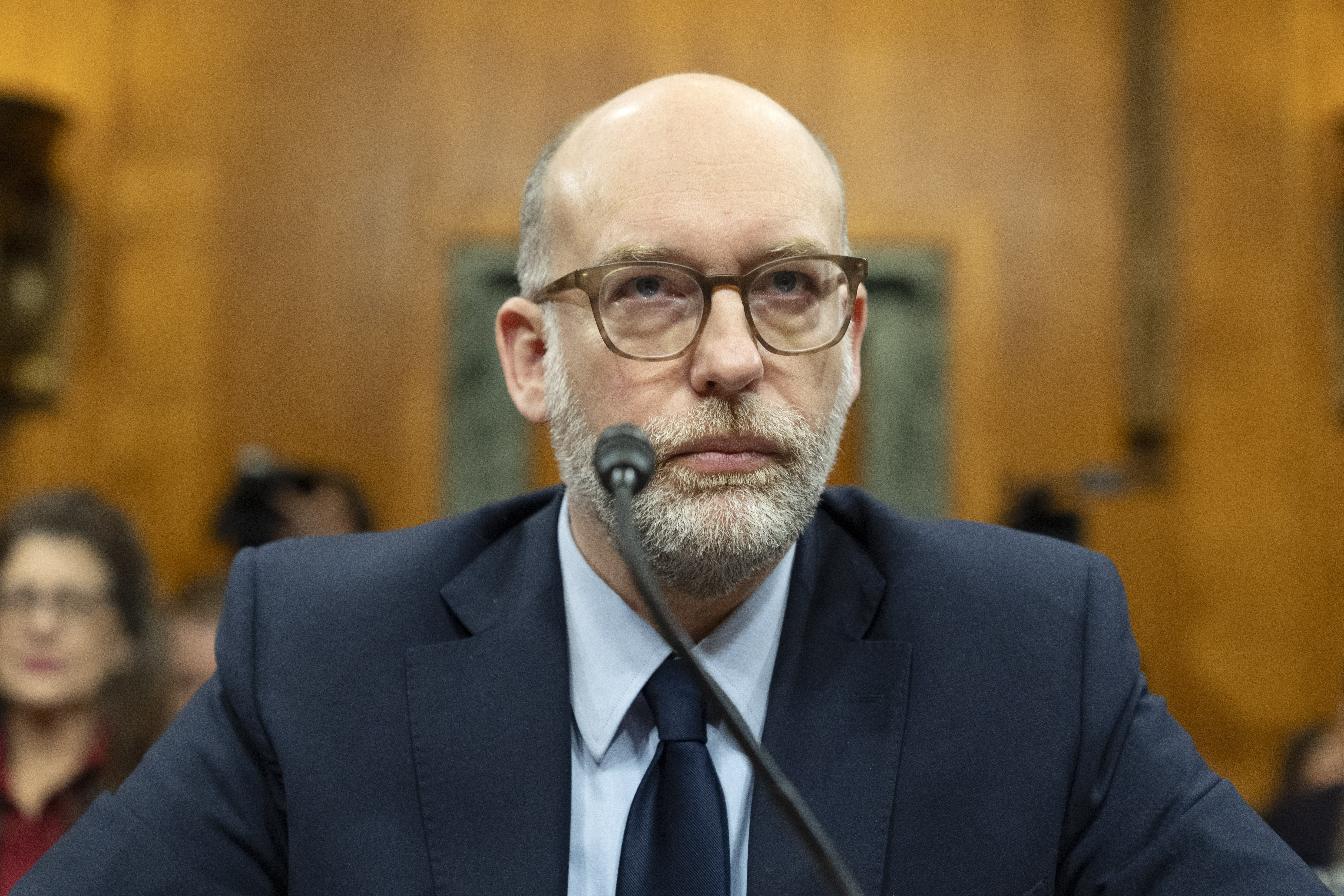Larry Wexler is enjoying a hard-earned retirement, but if you ask him about his former life, he beams.
“I had the greatest job in the world,” said Wexler, of Maryland.
For more than three decades, the former public school teacher worked at the U.S. Department of Education, overseeing grants to build a much-needed pipeline of special education teachers and service providers across the country.
“For them to do good things for children with disabilities and their families, what could be more fun? What could be more rewarding?” he said.
We've got the news you need to know to start your day. Sign up for the First & 4Most morning newsletter — delivered to your inbox daily. Sign up here.
Wexler retired last year but still feels deeply tied to his former mission, which is why he’s so concerned about President Donald Trump’s plans to potentially gut the federal government’s smallest department.
On the campaign trail, Trump pledged to eliminate the agency, which he has called a “con job.” Now in office, he and billionaire Elon Musk have taken steps toward that by slashing staff and millions of dollars’ worth of contracts.
According to an employee union, they’ve eliminated at least 70 workers and placed 75 more on leave. They’ve also reportedly cut nearly $900 million in contracts that, according to a list reviewed by the I-Team, were to help accelerate math learning, improve outcomes for English learners, and track student performance, among other goals. Despite Musk and his Department of Government Efficiency boasting of the savings, it’s unclear how much of those funds may have already been spent.
Wexler, who served under every president since George H.W. Bush, acknowledged there’s room for improvement, but said not in the way Musk and DOGE are going about it.
“My experience is that it takes about six months for an incoming administration and all of their political appointees to understand that federal workers are not lazy and stupid and that, in fact, they are passionate to make the policies of each new administration successful,” he said. “Are there things that could be cut? Perhaps should be cut? Unquestionably. But you have to assess first.”
The conversation about abolishing the Department of Education began as soon as it was created by President Jimmy Carter in 1979.The effort has picked up steam in recent years, however, due to cultural wars over issues such as gender and diversity, equity and inclusion efforts, said Rick Hess, founder and chairman of American Enterprise Institute's Conservative Education Reform Network.
“The reason this is so heated is because a lot of folks on the right feel like the Department of Education took their children for granted and wound up supporting cultural agendas that were hostile to their children [and] hostile to their values,” he said.
He supports the Trump and Musk-led shake-up, but admits it’s imperfect.
“They’re moving even more aggressively than some of us had expected. I think there's a lot of furniture getting broken, a few pieces of mom's china along the way, but I'm pretty happy with it,” he said.
President Trump has said repeatedly he'd like to see education controlled “by the states,” but individual states already control about 90% of their education budget and set their school system's educational priorities. Only about 10% comes from the Department of Education.
With its $79 billion budget for discretionary programs, the department helps fund the Title 1 program to supplement the needs of low-income students and insures supports for students with special needs. The department also oversees billions in annual federal student aid.
“Nobody is suggesting those programs get cut,” Hess said.
But some are suggesting moving them to other agencies.
A lot of the president's actions so far have mirrored a plan laid out in the conservative Project 2025, which proposes sending special education funding to the U.S. Department of Health and Human Services for oversight; its statistical office to the Department of Commerce's Census Bureau; and its Office for Civil Rights to the Department of Justice.
Experts tell the I-Team that doing so would require an act of Congress — as would abolishing the agency altogether. While it’s unlikely the president could overcome the 60-vote hurdle in the U.S. Senate, a former Education official under President Joe Biden warned doing so would weaken the department’s cohesive focus on the nation’s schools.
“If you take it apart and one piece goes here, one piece goes there, one piece goes someplace else, then you don't have a collection of people who are all working together on education,” said Catherine Lhamon, who served as assistant secretary overseeing civil rights at the department under the Obama and Biden administrations.
While there, she received both praise and criticism, especially on the right, for her handling of how campuses investigate sex assault. That policy was rescinded during Trump’s first term.
“We've seen tremendous polarization in the country about the various issues that come to the Office for Civil Rights,” Lhamon acknowledged.
But that was just part of her office's work. Her team of roughly 600 people investigated complaints of civil and disability rights violations in K-12 schools across the country, too.
In her last fiscal year, she said her office received nearly 23,000 complaints of state-run school systems violating access to free and fair education, with as many as 15,000 cases still pending. The News4 I-Team found nearly 1,000 of those cases remain open in D.C., Maryland and Virginia.
Lhamon said she’s worried that, if civil rights investigations are moved to the Department of Justice, it will pick and choose which complaint it pursues — instead of investigating each one.
“Every single one of the cases that comes into the office represents a family's deepest hurts,” she said.
The I-Team asked the Department of Education if it’s taken steps toward relocating functions of the department to other agencies; how many workers have been terminated, placed on administrative leave or have taken the buy-out; and what will come of the pending civil rights investigations. The I-Team has not heard back.
Meanwhile, the Office for Civil Rights under Trump has announced it's investigating several Northern Virginia schools on whether their transgender policies that allow students to use facilities in accordance with their gender identity violate federal law.
Former U.S. Secretary of Education Arne Duncan, who served under President Barack Obama, is among those speaking out against the potential changes, telling the I-Team what he's seeing now is a departure from past Republican administrations.
“There's nothing left or right or ‘R’ or ‘D’ about helping our babies get off to a good start in life or teaching kids how to read … These are nation-building goals. It's in our nation's interest,” he said. “Every president has seen that. Trump is the absolute anomaly.”
Wexler said he worked for former President George W. Bush when the Republican leader enacted No Child Left Behind — a landmark law that required schools to account for students with disabilities in their assessments.
The former federal worker said he's worried too many kids could be left behind now, depending on what becomes of the department.
“There needs to be a check and balance in there to ensure that children get the services that they need to be successful,” he said.
News4 photographers Evan Carr and Jerry Lawlor contributed to this report.




